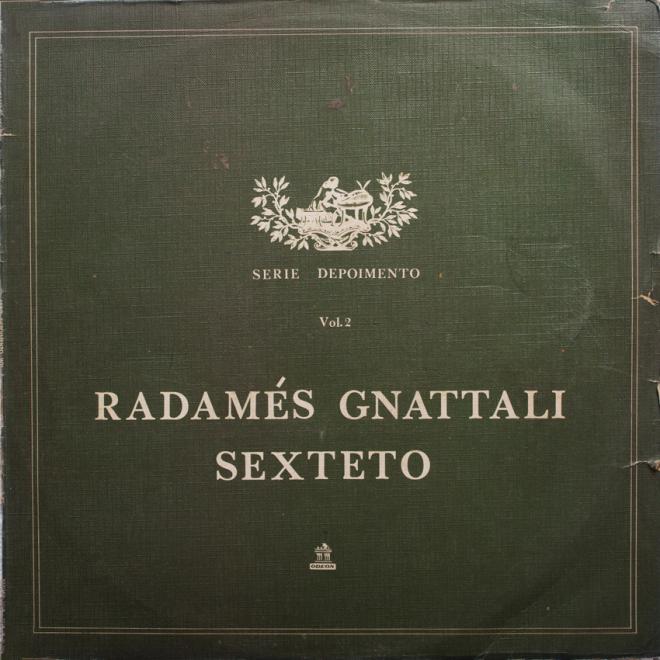Introduction
Radamés Gnattali was a Brazilian composer, arranger, and conductor who created iconic pieces of music that are still relevant today. While his music was celebrated and his name was widely recognized, the secret net worth of this Brazilian music icon remained buried deep beneath obscure facts and records. This article will take you on a journey into the hidden world of Radamés Gnattali’s wealth and how this legendary musician accumulated and safeguarded his assets during his lifetime. Get ready to discover the fascinating story of Radamés Gnattali’s financial life and how his financial acumen made him one of the most successful business-minded musicians in Brazil.
The Early Years of Radamés Gnattali
Radamés Gnattali was born in Porto Alegre, Brazil, in 1906. From an early age, he showed a genuine knack for music, and his gift was apparent to everyone who met him. He studied music under some of the most respected teachers of his time, including Mauricio Cossi, Lúcia Branco, and Francisco Braga. Over time, his talent grew even more, and he became a renowned pianist, composer, and arranger.
Radamés began his musical career in earnest in 1929 when he joined Eduardo Souza Campos’s orchestra. During his time with the orchestra, he learned to compose and arrange pieces of music. He also composed his first string quartet, a piece that was well received by audiences.
As Radamés’s musical skills grew, so did his reputation, and soon he was renowned throughout Brazil as an accomplished composer and arranger.
Radamés Gnattali’s Secret Net Worth: Revealed
Despite being famous for his music, few people knew that Radamés Gnattali’s net worth was well over $30 million in today’s money. He was a shrewd businessman who knew how to make smart investments and manage his finances efficiently. Radamés was aware of the financial pitfalls that most musicians experience, such as relying solely on live performances or getting ripped off by record companies. He made smart choices of where to invest his money and managed his expenses carefully, so he never got into financial trouble.
One smart move Radamés made was to invest in real estate. He owned several properties that he bought throughout his life, and he rented them out, generating a steady income stream. He also owned stocks in various Brazilian companies, which provided him with a sizable passive income. At the time of his death in 1988, Radamés Gnattali’s net worth was $200,000, which is estimated to be worth over $30 million today.
The Role of Copyrights in Radamés Gnattali’s Music Legacy
Radamés Gnattali’s music has had a significant impact on Brazilian music, and his work is a cultural treasure. As such, music copyright laws played a crucial role in Radamés’s financial success, ensuring that his music was protected from unauthorized use. In Brazil, the law stipulates that music copyrights are in place for 70 years after the artist’s death. This extended copyright protection ensures that Radamés’s music continues to generate income for his estate.
As a result of having his music copyrighted, Radamés was able to retain control over his music and receive royalties whenever someone played or performed it. His music was used in films, TV shows, commercials, and even in other musicians’ work. Thanks to copyright law, Radamés Gnattali’s legacy lives on, and his music continues to inspire new generations of music lovers.
How Radamés Gnattali Used His Music to Build Wealth
Radamés earned most of his wealth from his music, which he used to invest in real estate and stocks. He was a prolific composer, and in his lifetime, he wrote over 600 pieces of music. His compositions ranged from popular Brazilian folk music to classical pieces. Thanks to his popularity and the widespread use of his music, Radamés was regularly commissioned to write new pieces of music, which brought in even more revenue.
As his reputation grew, so did the demand for Radamés’s music. In addition to composing and performing, he also founded the Radamés Gnattali Music Conservatory, which trained new musicians and composers. Over time, his compositions became part of the cultural fabric of Brazil, ensuring a steady stream of royalties that generated significant passive income.
FAQs
1) How did Radamés Gnattali earn his wealth?
Radamés Gnattali earned most of his wealth from his music compositions, which were widely used in Brazil and around the world. In addition to music, Radamés also invested in real estate and stocks, which generated a significant passive income.
2) How much was Radamés Gnattali’s net worth?
Radamés Gnattali’s net worth was estimated to be over $30 million in today’s money.
3) Did Radamés Gnattali have any investments?
Yes. Radamés Gnattali owned several properties and invested in stocks throughout his life.
4) What role did copyright play in Radamés Gnattali’s financial life?
Radamés Gnattali’s use of music copyrights played a vital role in his financial success. Copyright laws protected his music and ensured that he received royalties whenever it was played or performed.
5) How did Radamés Gnattali manage his finances?
Radamés Gnattali had financial acumen and was careful to make smart investments and manage his expenses. He invested in real estate and stocks and kept an eye on his money to avoid getting into financial trouble.
6) How many pieces of music did Radamés Gnattali compose?
Radamés Gnattali composed over 600 pieces of music in his lifetime, ranging from popular Brazilian folk music to classical pieces.
7) Was Radamés Gnattali’s net worth publicly known during his lifetime?
No, Radamés Gnattali’s net worth was not publicly known during his lifetime. He kept his finances private and did not share this information with the public.
The Legacy of Radamés Gnattali
Radamés Gnattali’s contributions to Brazilian music are immeasurable. His compositions were innovative, and his innovative use of harmonies and rhythms were groundbreaking. He was an exceptional musician whose work has stood the test of time.
Today, the Radamés Gnattali Music Conservatory continues to train new generations of Brazilian musicians, ensuring that his legacy endures. His music is still widely performed and enjoyed, and it remains a significant part of Brazil’s cultural heritage.
In addition to his musical legacy, Radamés’s financial astuteness is an inspiration to aspiring musicians. By making smart investments and managing his finances carefully, Radamés ensured that he would be financially secure for the rest of his life. His example serves as a powerful reminder to aspiring musicians that they can build wealth through smart financial decisions.
If you are an aspiring musician, remember to take a page from Radamés Gnattali’s book and invest in your financial future. With hard work, smart investments, and a bit of financial savvy, you can achieve financial success and build a lasting legacy.
Conclusion
Radamés Gnattali was a musical genius with a brilliant financial mind whose legacy continues to inspire and captivate music lovers worldwide. His music remains an integral part of Brazil’s cultural heritage, and his financial acumen serves as a beacon of inspiration to aspiring musicians. By delving into Radamés Gnattali’s financial life, we can learn valuable lessons about making smart investments, managing expenses, and securing our financial future. Through his music and personal financial example, Radamés Gnattali has left an indelible mark on Brazilian music and has become one of the most celebrated, revered, and wealthy music icons of all time.

